
Metclav-Duo DS Dry Syrup
Manufacturer
Medishri Healthcare
Salt Composition
Amoxycillin (400mg/5ml) + Clavulanic Acid (57mg/5ml)
Key Information
Short Description
Metclav-Duo DS Dry Syrup is an antibiotic medicine that helps treat bacterial infections of the ear, nose, throat, chest, lungs, teeth, skin, and urinary tract.
Dosage Form
Oral Suspension
Introduction
Metclav-Duo DS Dry Syrup is an antibiotic medicine that helps treat bacterial infections of the ear, nose, throat, chest, lungs, teeth, skin, and urinary tract. It is capable of killing bacteria that have become resistant to other therapies and thus also helps treat tuberculosis that is resistant to other treatments.
Directions for Use
Your child must complete the entire course of antibiotics. Stopping too soon may cause the bacteria to multiply again or cause another infection.
How it works
Metclav-Duo DS Dry Syrup is an antibiotic. It has two active agents amoxycillin and clavulanic acid. Amoxycillin works by preventing the formation of the bacterial protective covering (cell wall) essential for the survival of the bacteria. Whereas clavulanic acid serves a special purpose of inhibiting an enzyme (beta-lactamase) that is produced by resistant bacteria. This makes the combination of amoxycillin and clavulanic acid an effective line of treatment for many types of infections.
Quick Tips
Your child must complete the entire course of antibiotics. Stopping too soon may cause the bacteria to multiply again or cause another infection. Encourage your child to drink plenty of water in case diarrhea develops as a side effect. Never give Metclav-Duo DS Dry Syrup until and unless prescribed by the doctor. Do not give Metclav-Duo DS Dry Syrup to treat common cold and flu-like symptoms caused by viruses. Check ‘expiry’ before giving Metclav-Duo DS Dry Syrup to your child. Immediately discard all the expired medicines.
Related Medicines
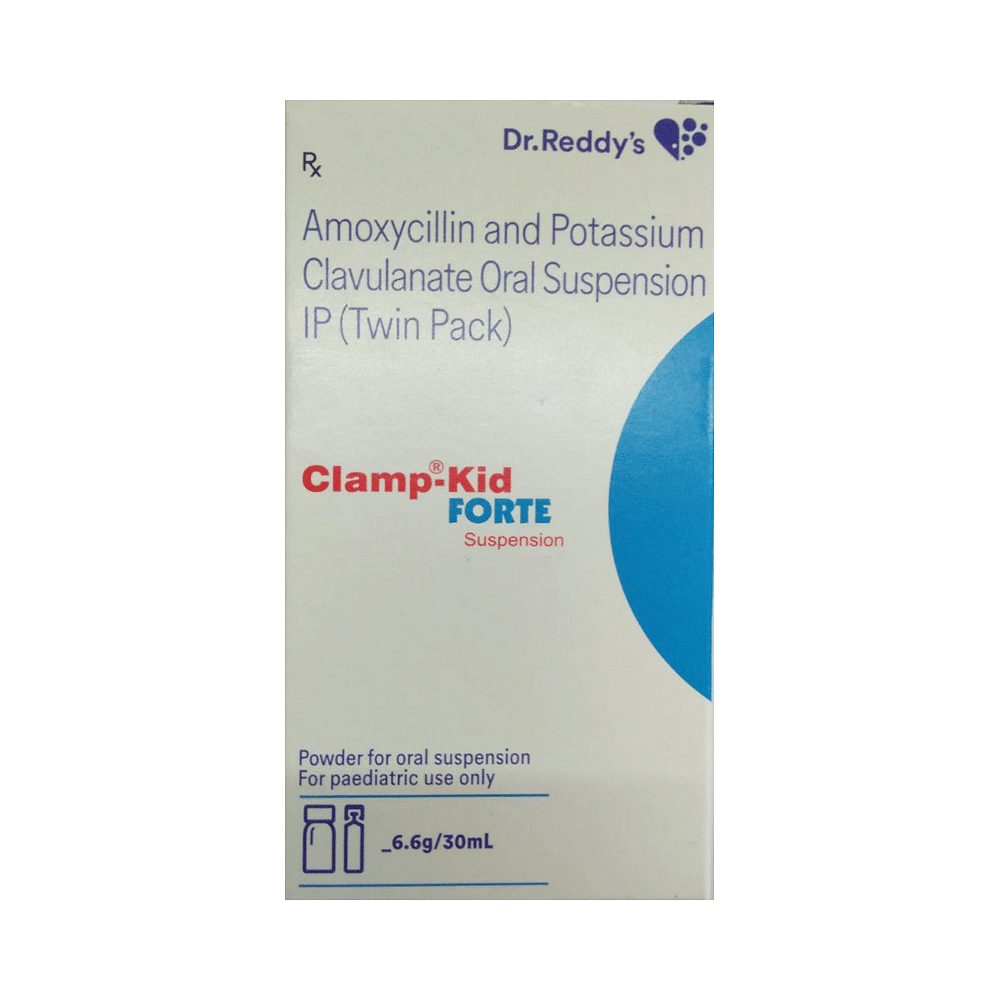
Clamp Kid Forte Suspension

Moxikind-CV Forte Dry Syrup
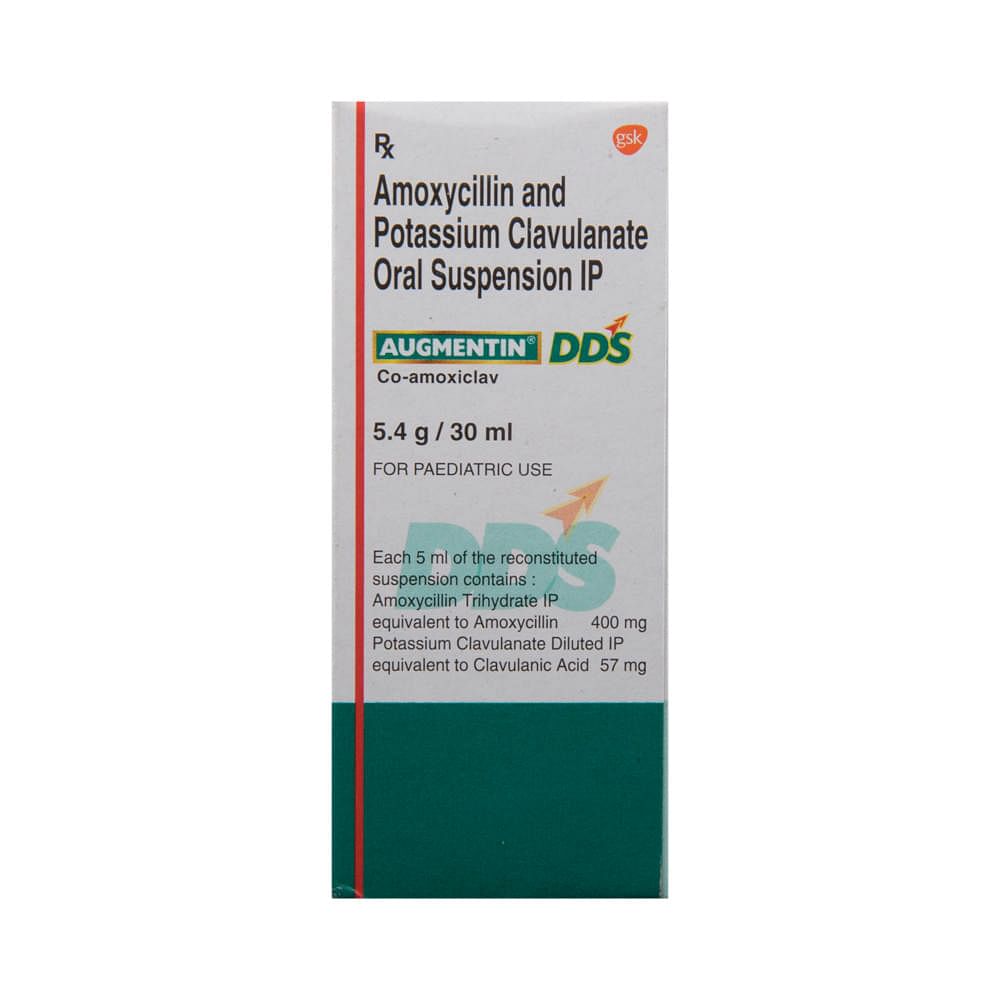
Augmentin DDS Suspension
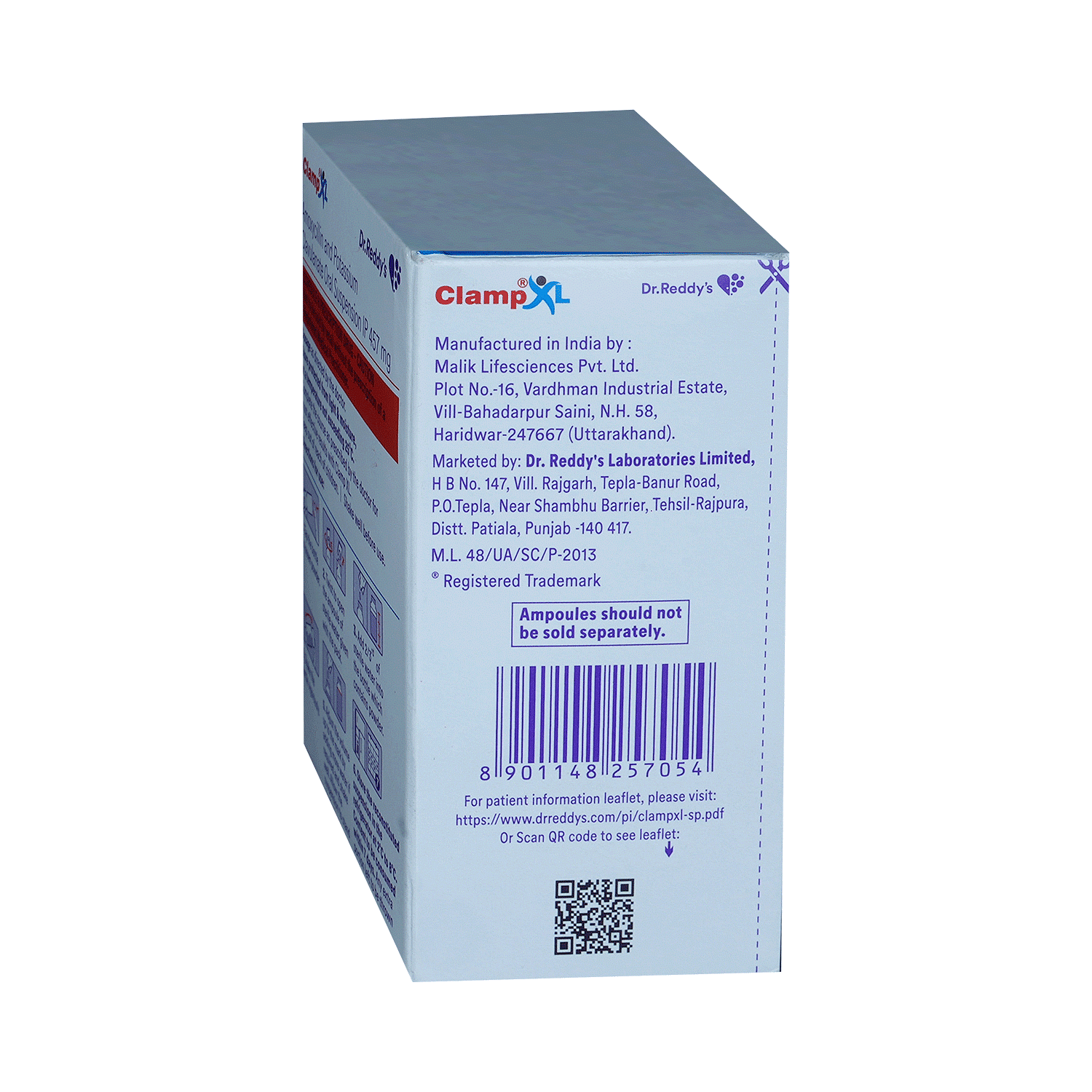
Clamp Xl Suspension

Moxiport-CV Duo Dry Syrup

Chemross-Duo 457mg Dry Syrup
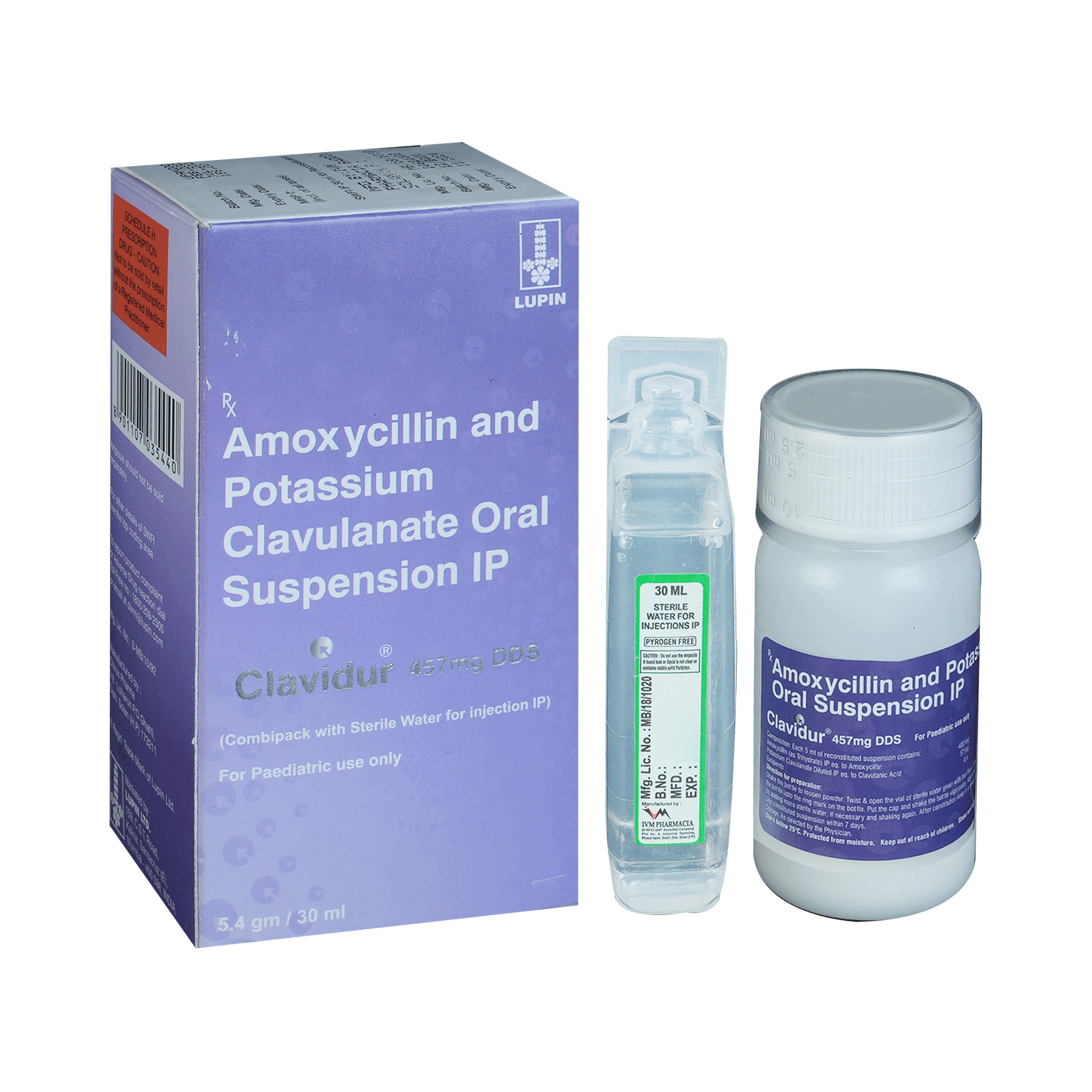
Clavidur 457mg DDS Oral Suspension
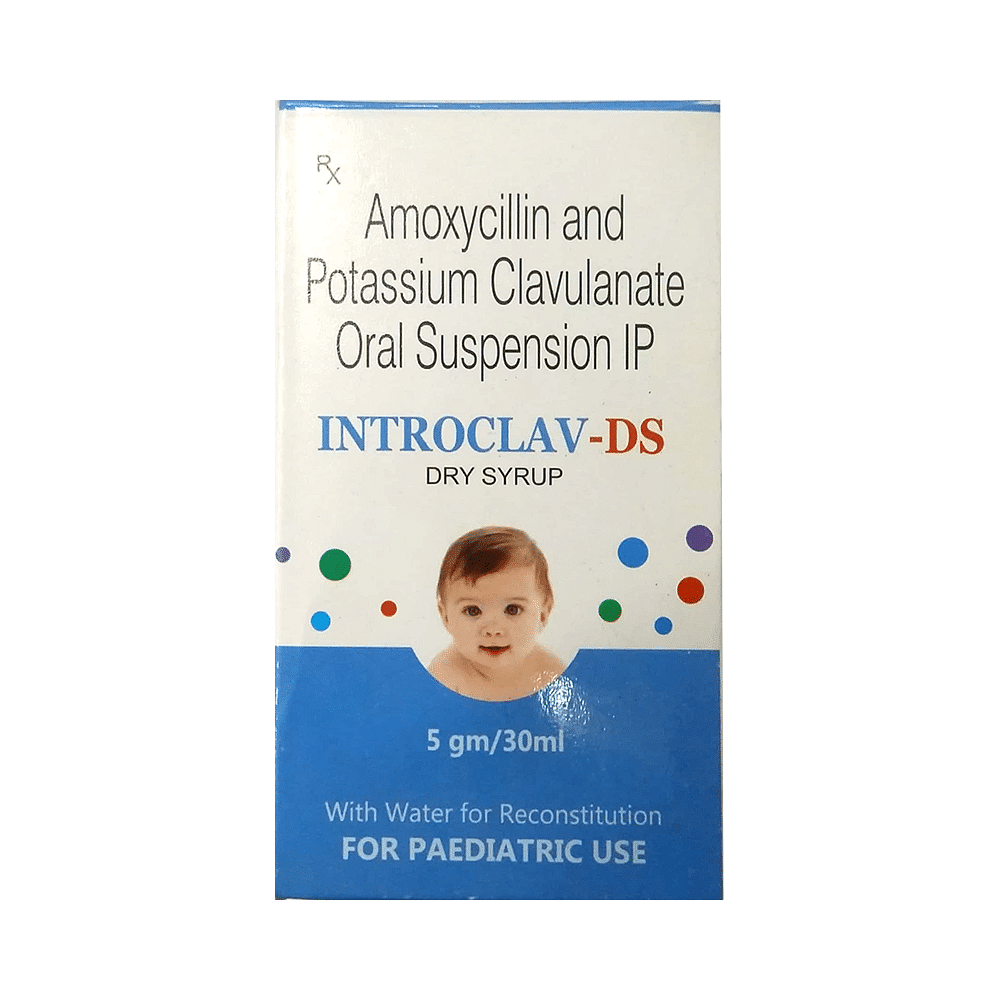
Introclav-DS Dry Syrup
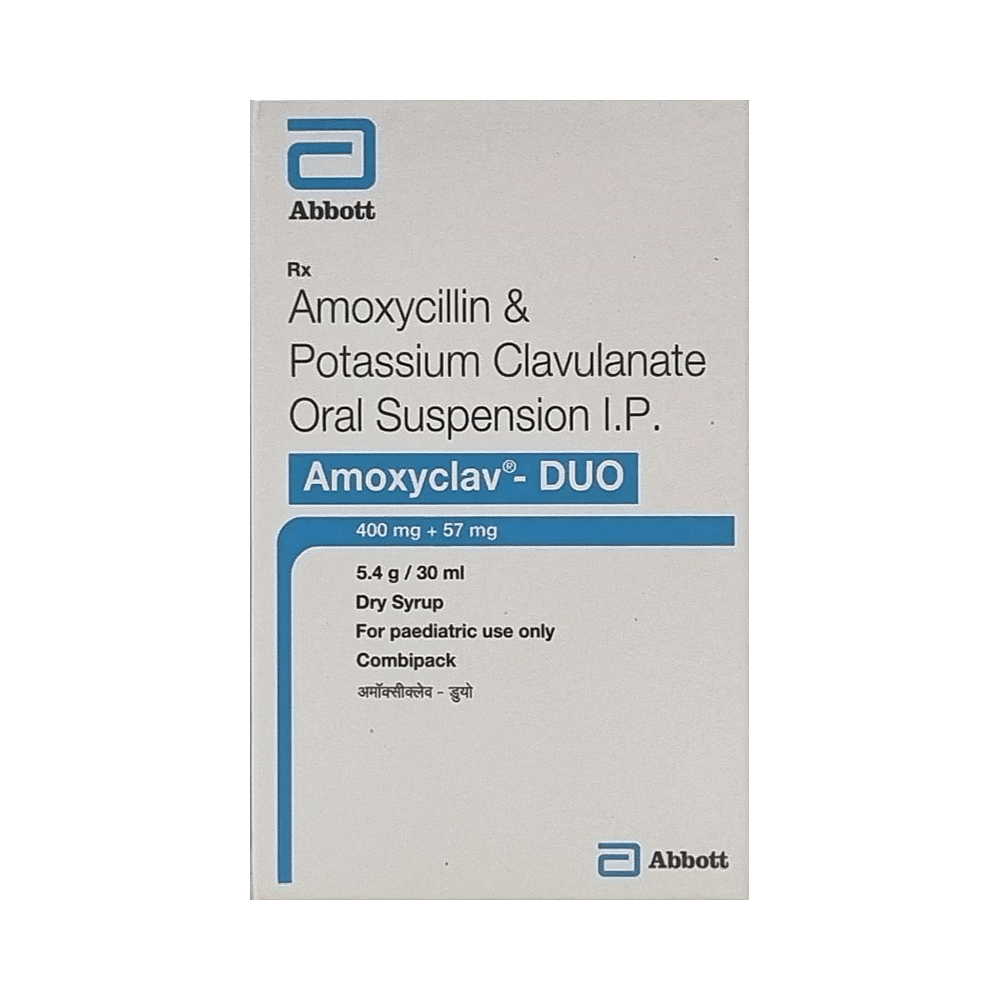
Amoxyclav-Duo Oral Suspension

Estamox-CV 457 Oral Suspension
Frequently asked questions
Can other medicines be given at the same time as Metclav-Duo DS Dry Syrup?
Metclav-Duo DS Dry Syrup may interact with other medicines or substances. It is crucial to inform your child's doctor about all other medications they are taking before starting treatment with Metclav-Duo DS Dry Syrup. Consult with a healthcare professional regarding any medication administration for your child.
Can I get my child vaccinated while on treatment with Metclav-Duo DS Dry Syrup?
Generally, antibiotics do not interfere with the ingredients in vaccines or cause adverse reactions in children who have recently received vaccinations. However, it is recommended to delay vaccination until your child has recovered from any illness after completing the course of antibiotics. Once your child feels better, they can be vaccinated.
Which lab tests may my child undergo while taking Metclav-Duo DS Dry Syrup on a long-term basis?
Periodically, monitoring kidney and liver function tests may be considered after prolonged treatment with Metclav-Duo DS Dry Syrup to assess your child's overall health.
Can I give a higher than the recommended dose of Metclav-Duo DS Dry Syrup to my child?
It is not advisable to exceed the prescribed dosage for this medication. Giving a higher dose may increase the risk of side effects. If your child experiences worsening symptoms, consult with their doctor for re-evaluation.
Can I stop giving Metclav-Duo DS Dry Syrup to my child when the symptoms are relieved?
It is not advisable to discontinue treatment prematurely without consulting a healthcare professional. Even if symptoms improve, it's essential to finish the entire prescribed course to ensure complete eradication of the infection. Stopping medication before completing it may hinder proper healing and potentially result in recurring infections.
Can the use of Metclav-Duo DS Dry Syrup cause diarrhea?
Yes, Metclav-Duo DS Dry Syrup can cause diarrhea as it is an antibiotic that eliminates harmful bacteria. Additionally, the medication may influence the beneficial bacteria in your child's gut, leading to diarrhea. If your child experiences diarrhea, encourage them to drink plenty of water or other fluids. If diarrhea persists and you notice signs of dehydration, such as reduced urination with dark-colored and strong-smelling urine, do not administer any other medication without consulting a medical professional.
Do all viral common colds result in secondary bacterial infection?
While most viral infections don't lead to secondary bacterial infections. It is crucial to understand that using antibiotics for viral infections can increase the risk of side effects and should only be done after consulting your child's doctor.
The mucus coming out of my child’s nose is yellow-green. Is it a sign of a bacterial infection?
Yellow or green nasal discharge during a common cold isn't a definitive indicator of a bacterial infection. It's normal for mucus to thicken and change color, transitioning from clear to yellow or green during a common cold. Symptoms often subside within 7-10 days.
Is there any sign which shows that my child needs immediate medical attention?
In case of severe allergic reactions (breathing difficulties, skin rashes), gastrointestinal infections (diarrhea), and liver damage (weakness, paleness, vomiting) seek immediate medical attention. Though rare, these side effects require expert intervention.


